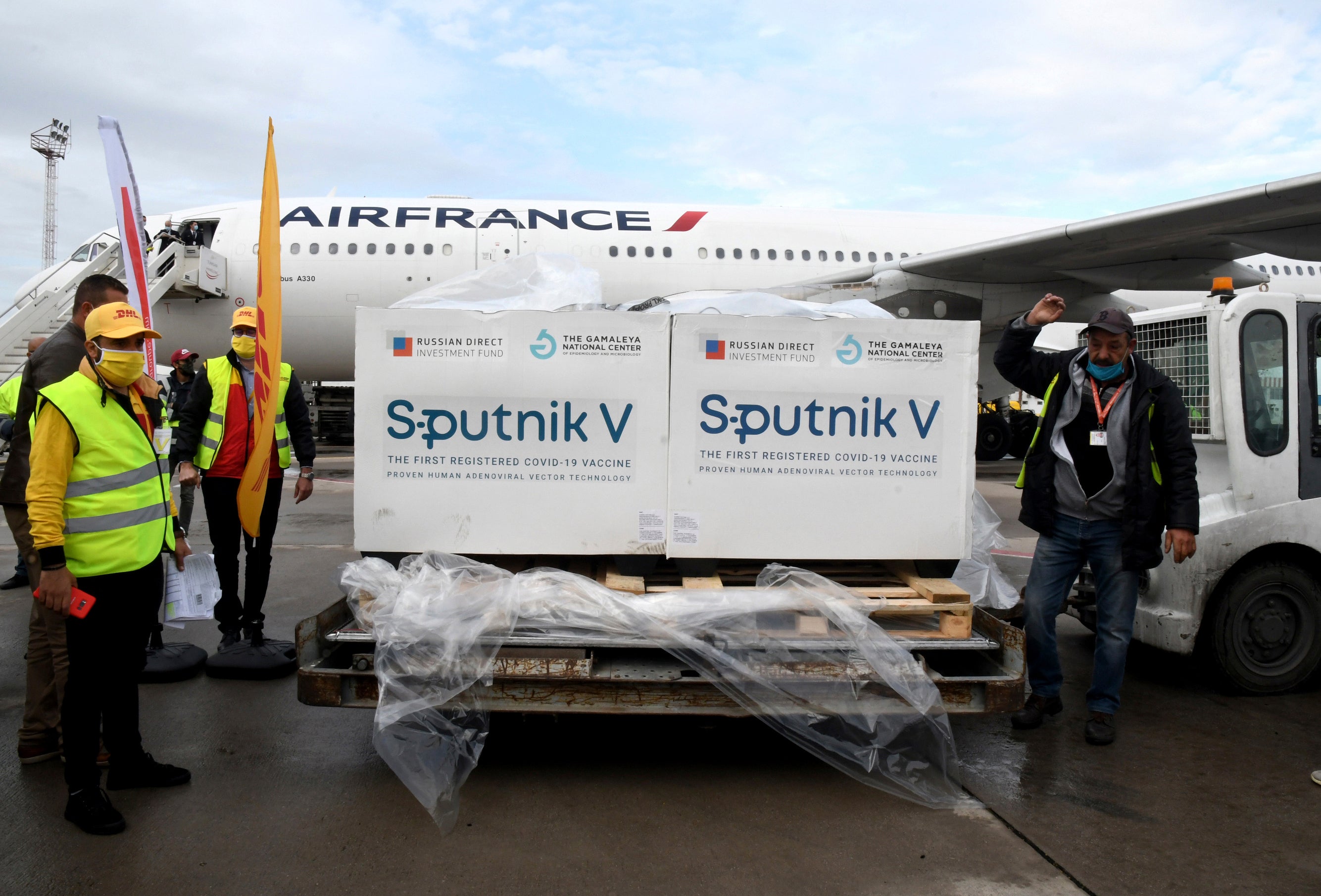Tunisia receives first batch of coronavirus vaccines
Tunisia has received its first batch of coronavirus vaccines

Your support helps us to tell the story
From reproductive rights to climate change to Big Tech, The Independent is on the ground when the story is developing. Whether it's investigating the financials of Elon Musk's pro-Trump PAC or producing our latest documentary, 'The A Word', which shines a light on the American women fighting for reproductive rights, we know how important it is to parse out the facts from the messaging.
At such a critical moment in US history, we need reporters on the ground. Your donation allows us to keep sending journalists to speak to both sides of the story.
The Independent is trusted by Americans across the entire political spectrum. And unlike many other quality news outlets, we choose not to lock Americans out of our reporting and analysis with paywalls. We believe quality journalism should be available to everyone, paid for by those who can afford it.
Your support makes all the difference.Tunisia received its first batch of coronavirus vaccines on Tuesday — 30,000 doses of Russia’s Sputnik V — and will start inoculations on Saturday.
The North African country's vaccination program has dragged behind its neighbors, even as virus infections and hospitalizations have remained high.
The first deliveries came from Russia aboard an Air France plane and were ceremoniously received by the health minister. Vaccinations are scheduled to start with health care workers, soldiers and security officers, people over 65 and people with chronic health problems.
The country is expecting deliveries of hundreds of thousands of new doses in the coming weeks of Russian and Chinese vaccines as well as those from Pfizer-BioNTech and AstraZeneca Hachemi Louzir, head of Tunisia’s coronavirus vaccination campaign, told The Associated Press.
The Chinese vaccines include 200,000 donated doses, Louzir said, while the Pfizer and AstraZeneca vaccines are coming via the global COVAX program aimed at supplying vaccines to developing countries that might otherwise struggle to afford them.
Among reasons for the delayed rollout was a requirement from some drug producers that Tunisia adopt a law that would ensure the government would take responsibility for any problems with the vaccines.
Despite the delays, Tunisia is hoping to vaccinate 50% of its population of 12 million by the end of the year.
Tunisia has reported more than 238,000 virus cases and 8,225 lives lost, one of the highest official virus death tolls in Africa.